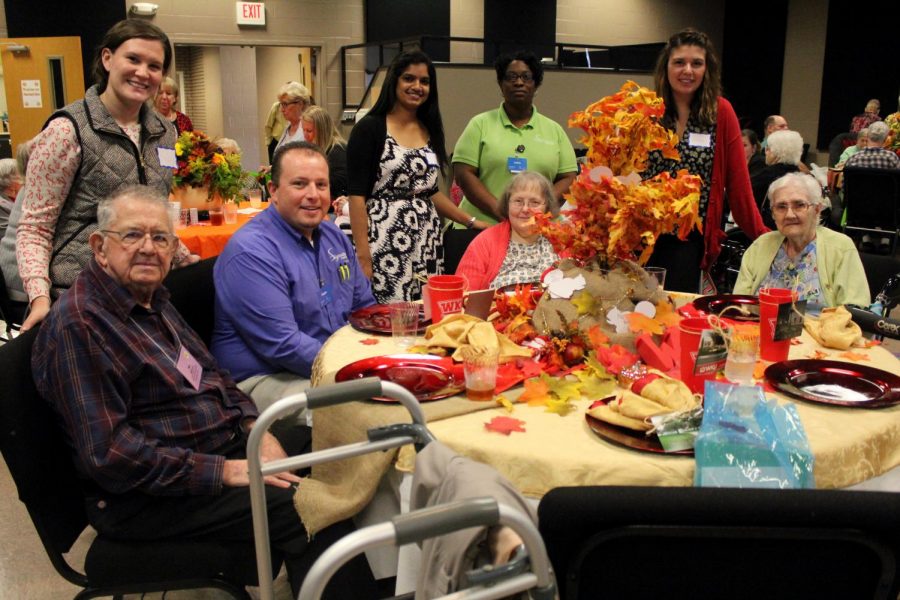Students visit, support long-term care residents
October 28, 2014
Imagine feeling isolated to one building and hardly having any visitors to communicate feelings and thoughts to. Many long-term care residents in nursing homes have to endure this situation for years.
Marybeth Hunt, the advisor for Companions of Respected Elders, said national statistics show that 60 percent of long-term care residents receive one or zero visitors per year.
“So there are many residents who don’t get that support from friends or family or someone outside the facility,” she said.
Hunt is working along with WKU students to impact the lives of these residents through CORE, an on-campus organization. Two pre-med students started the club about two or three years ago.
“They had visited their grandparents in nursing facilities and saw the need for those residents to have visitors, especially those who didn’t get very many visitors,” Hunt said.
The club now has about 15 regular members. Students who want to get involved with CORE can have a major of any kind. The club encourages students to join if they have the desire to change the lives of residents.
“What we try to do is bridge that gap between the community and the facility and provide that companionship to residents,” Hunt said.
CORE provides companionship in monthly and once-a-week visits to Signature HealthCARE of Bowling Green, a nursing and rehabilitation center. The club tries to visit every month and gain connections with the residents by handing out cards and playing games.
For the weekly visits, the nursing home matches a student to a resident by their personality characteristics. Then the student can visit the resident once a week on the student’s own time.
Lexington junior Hannah Ruggles visits a 59-year-old woman every week who has been in care for three years now.
“The woman I visit is a lot more fun than I thought she would be because she’s very vocal and loves to talk about herself,” Ruggles said.
The members of the club believe the impact they have on the residents is benefiting them in many ways. Just visiting a resident once a week can make a huge difference.
“I think the biggest impact this has may be simply reassuring residents that they aren’t forgotten and that people care for them,” Hunt said.
She also believes the club has an impact on students as well as residents.
“I think that the young people are making an effort and I think that’s a great example for other students on campus,” Hunt said.






















![Megan Inman of Tennessee cries after embracing Drag performer and transgender advocate Jasmine St. James at the 9th Annual WKU Housing and Residence Life Drag Show at Knicely Conference Center on April 4, 2024. “[The community] was so warm and welcoming when I came out, if it wasn’t for the queens I wouldn’t be here,” Inman said.](https://wkuherald.com/wp-content/uploads/2024/04/smith_von_drag_3-600x419.jpg)


